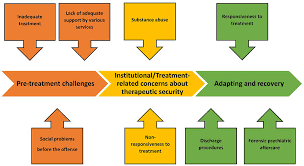Table of Contents
- Understanding Your Needs
- Qualifications and Expertise of Staff
- Treatment Approaches and Modalities
- Facility Reputation and Reviews
- Location and Accessibility
- Cost and Insurance Coverage
- Support Services and Aftercare
- Personal Connection and Comfort
Understanding Your Needs
Choosing the right outpatient psychological intervention treatment facility begins with an honest assessment of your or your loved one’s specific needs. Are you seeking help for anxiety, depression, substance abuse, or another mental health condition? Identifying the primary reason for seeking treatment will guide you in finding a facility specializing in those areas. Facilities like Renewed Light offer programs tailored to different mental health challenges, ensuring effective and personalized treatment. Addressing your specific needs increases the chances of a positive treatment outcome and long-term recovery.
Qualifications and Expertise of Staff
The qualifications and expertise of the staff can significantly impact the quality of care provided. Ensuring that therapists, counselors, and medical professionals are licensed and experienced in treating specific conditions is vital. Look for credentials such as board certifications, which indicate a higher level of specialized training. A facility with a team of well-trained and experienced professionals stands a better chance of delivering effective treatment and supporting successful recovery. Research staff profiles and customer reviews to understand the team’s capabilities and reputation. Trustworthy institutions often highlight their staff’s qualifications on their websites.
Treatment Approaches and Modalities
Different outpatient facilities offer various treatment approaches and modalities. Understanding these can help you make an informed decision. Common therapeutic methods include cognitive-behavioral therapy (CBT), dialectical behavior therapy (DBT), and holistic approaches. CBT focuses on changing negative thought patterns, DBT emphasizes emotional regulation, and holistic therapies may incorporate mindfulness and physical wellness. Each has strengths, and the choice should align with personal preferences and clinical recommendations.
Facility Reputation and Reviews
The reputation of a facility can serve as an indicator of its service quality. Looking up reviews on independent platforms and considering recommendations from healthcare professionals can be very insightful. Facilities with positive reviews and testimonials generally reflect a higher quality of care and patient satisfaction. You can check recent reports from credible sources like the APA News on Mental Health to gain additional perspectives on reputable institutions. Be wary of facilities with limited or negative feedback. Consistently positive experiences shared by former patients can build trust and confidence in a facility’s capabilities.
Location and Accessibility
Convenience of the facility’s location is another critical factor. A centrally located facility that is easily accessible reduces the stress associated with commuting, thus promoting regular attendance. Consistent treatment sessions are crucial for success; easier access can remove barriers to showing up. Consider aspects such as proximity to home or work, availability of public transportation, and parking facilities when deciding. If a facility is too far or difficult to get to, it could lead to missed appointments and hinder your progress. Weigh the convenience of the location alongside the quality of care to find the best fit.
Cost and Insurance Coverage
Financial considerations are often at the forefront of choosing a treatment facility. It is important to verify if the facility accepts your insurance and to understand any out-of-pocket expenses you may incur. Mental health treatment can be expensive, and unexpected costs can add stress. Opting for a facility within your budget helps avoid financial strain, which can harm treatment progress. Ask for a breakdown of costs before committing and check for hidden fees. Review insurance benefits, such as sessions, medications, and additional services, to know what is covered. Financial peace of mind allows you to focus fully on your recovery.
Support Services and Aftercare
Effective outpatient treatment extends beyond the primary therapy sessions; it includes comprehensive support services and aftercare. Look for programs that offer group therapy, family counseling, and relapse prevention plans. These services are crucial in ensuring sustained recovery and providing ongoing support post-treatment. Aftercare can significantly reduce relapse rates and help patients transition smoothly back to their everyday lives. Facilities that offer a holistic approach to treatment consider all aspects of healing, including psychological, emotional, and social support. Comprehensive aftercare plans often involve maintaining regular contact with therapists and support groups, ensuring continued growth and stability.
Personal Connection and Comfort
Finally, the level of comfort and personal connection you feel with the facility and its staff can influence treatment outcomes. An initial consultation can help you gauge whether you feel understood and supported by the treatment team. Comfort and trust in your caregivers are essential elements for successful therapeutic relationships. The right environment can foster openness and honesty, leading to more effective therapy sessions. Pay attention to your instincts during initial interactions and check if the team’s communication style and therapeutic approach resonate with you. Feeling at ease in the environment can greatly enhance your recovery journey.

